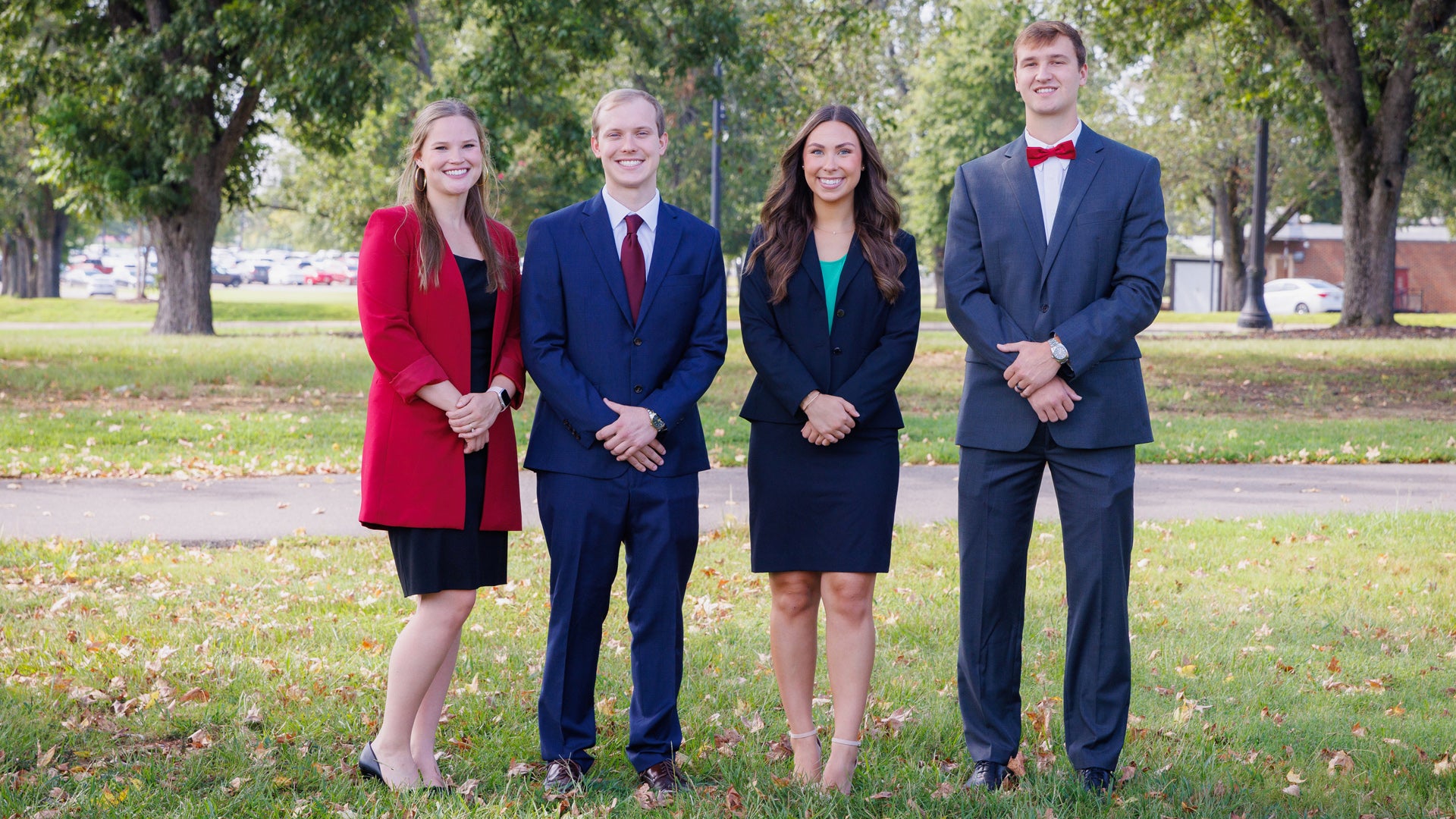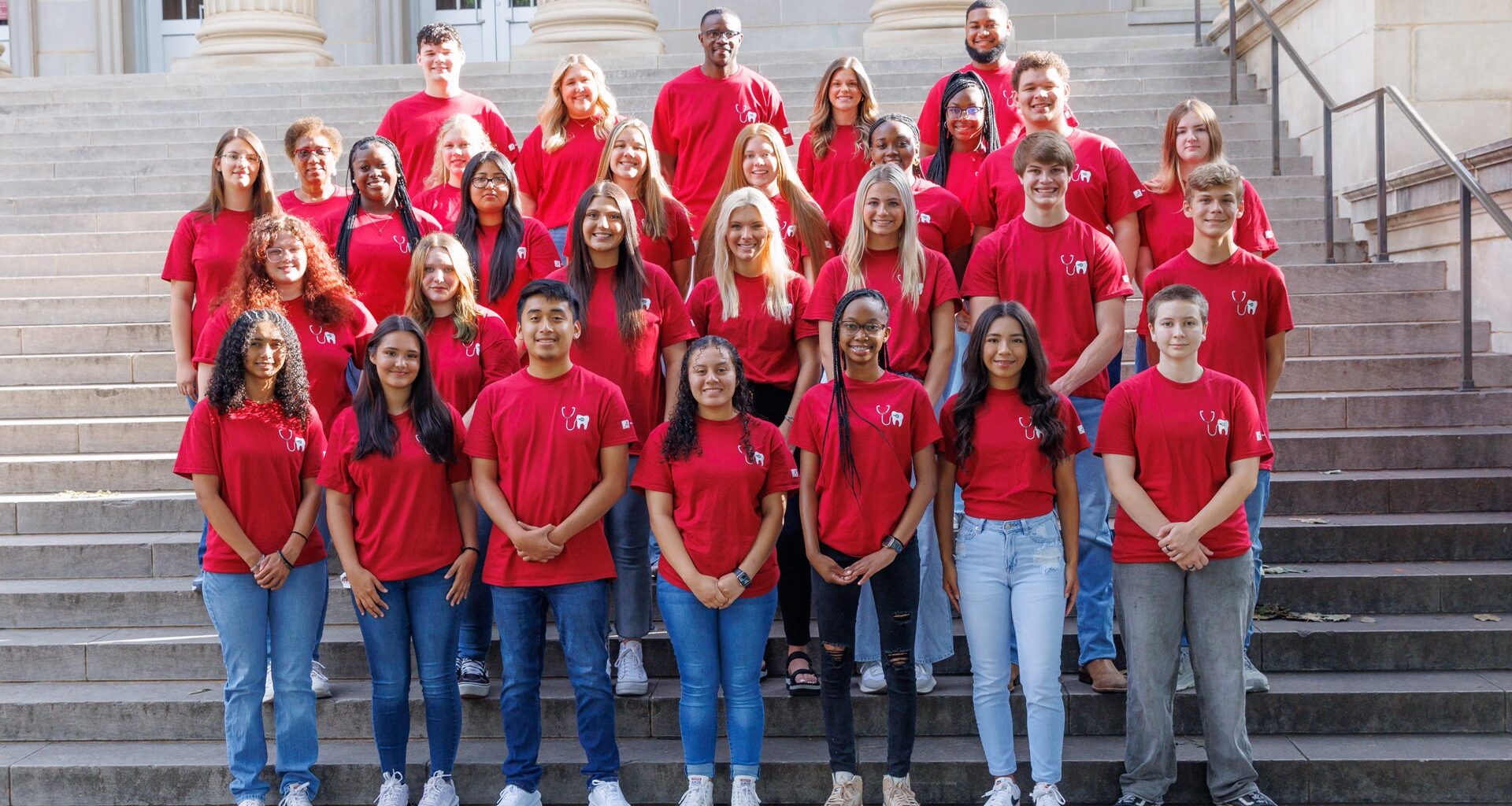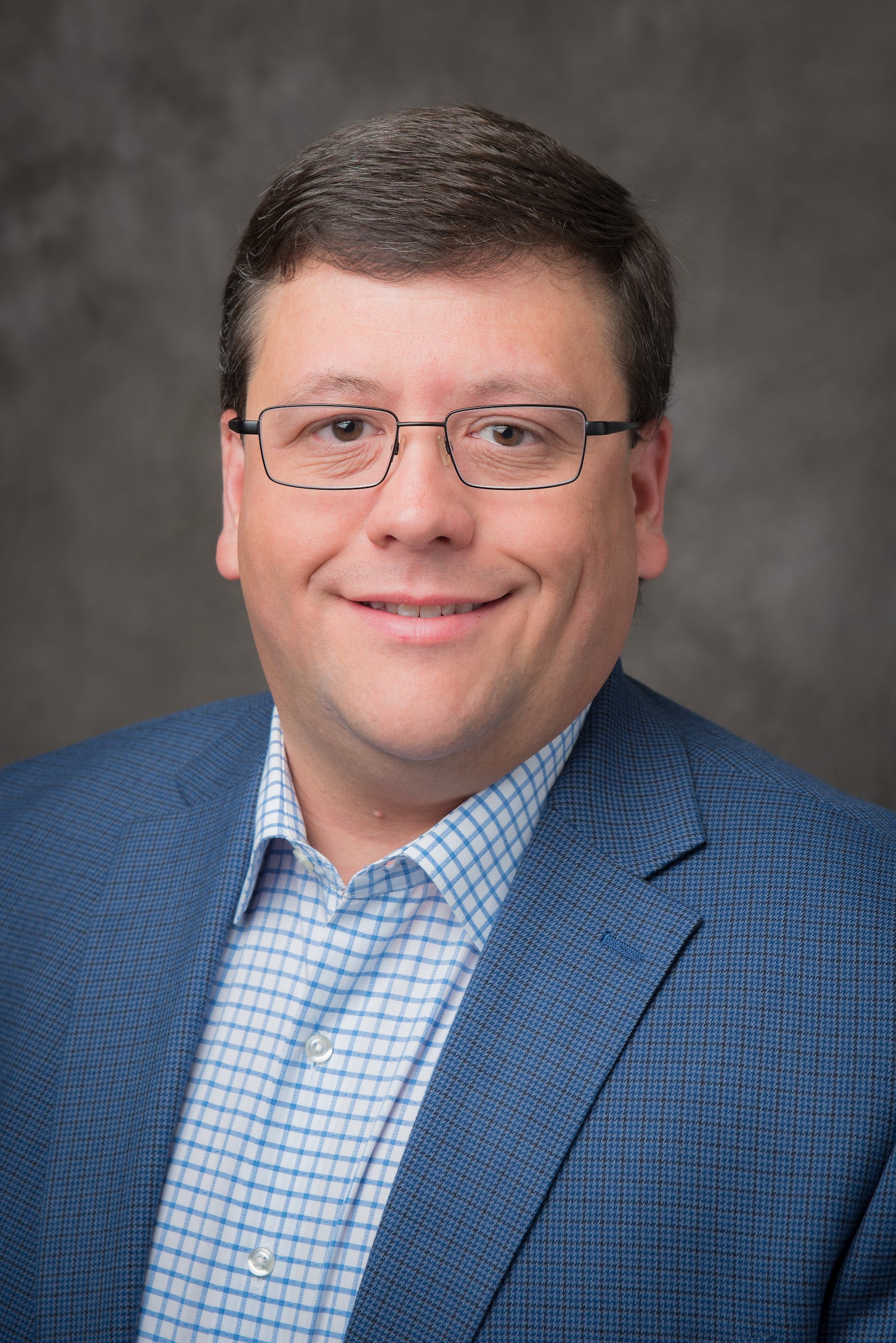The University of Alabama College of Community Health Sciences has set the standard for educating and training countless health care professionals who have improved health care across the state’s rural areas.
CCHS Rural Programs’ history started 30 years ago with the creation of the Rural Medical Scholars Program, a five-year medical education program exclusively for rural Alabama students who want to become physicians and practice in rural communities.
Dr. Drake Lavender, associate professor in the department of family, internal and rural medicine, has a unique perspective on the program’s evolution. While he now serves as director of CCHS Rural Programs, Lavender was one of its first graduates.
“I learned about the Rural Medical Scholars Program as a junior at UA and it aligned perfectly with my goals to practice in rural Alabama,” recalls Lavender. “It allowed me to be part of a cohort of students with similar backgrounds and career goals who all matriculated to the UAB School of Medicine while I did. This was incredibly valuable going through medical school together with a study and support group.”
Lavender was one of eight in the first class of Rural Medical Scholars, with seven choosing primary care specialties and five entering practices in rural Alabama.
“I’m incredibly proud to have been a part of the first class of this program,” said Lavender. “RMSP is now entering its 30th year and has stood the test of time in producing physicians for rural Alabama. Over the entire span of the program, more than 70% of the graduates practice primary care and over 50% of the graduates enter practice in rural Alabama.”
The Rural Health Leaders Pipeline has expanded over the years to provide education and training to not only college students but also high school students with a passion for providing health care to rural communities. Aside from primary care specialties, Rural Programs launched the Rural Dental Scholars Program in 2023 to provide a pathway for those interested in dentistry.
 The first class of Rural Dental Scholars.
The first class of Rural Dental Scholars.
“The framework of what we do is fairly easy to replicate with appropriate legislative, financial and institutional support,” said Lavender. “Many rural medical education programs around the country have contacted or visited us and used what they learned to build or enhance their own programs.
“We are constantly doing self-evaluations and thoughtfully modifying in response to the needs of our students and the needs of rural Alabama. There is such great need in our state, and we feel that we are part of the solution to the workforce and access to care in our rural communities.”
Lavender estimates more than 1,000 have participated in the Rural Health Leaders Pipeline with more than 800 of those in the high school outreach programs. The Rural Medical Scholars Program has produced 56 physicians who are currently practicing in rural Alabama.
“Graduates of our programs have logged 762 physician-years of practice,” said Lavender. “If you consider the economic impact of one primary care physician on their rural community is $1.5 million per year of practice, then Rural Medical Scholars has provided more than $1.1 billion of economic impact to rural Alabama.
“This does not factor in the impact that those physicians have on individual patients and their health conditions. Those impacts are impossible to quantify.”
When asked how Rural Programs has helped shape rural health care in the state, Lavender’s response is simple but powerful.
“The people in our program — faculty, staff and students — are rural Alabamians working hard to improve the health of our fellow rural Alabamians,” said Lavender. “Our graduates are out there doing the work and serving their communities. We are trying to identify, recruit, nurture and encourage the next generation of rural Alabama doctors and dentists.
“We are proud of the work that these programs have done over the past 30 years, but we know that there is so much more to do.”

